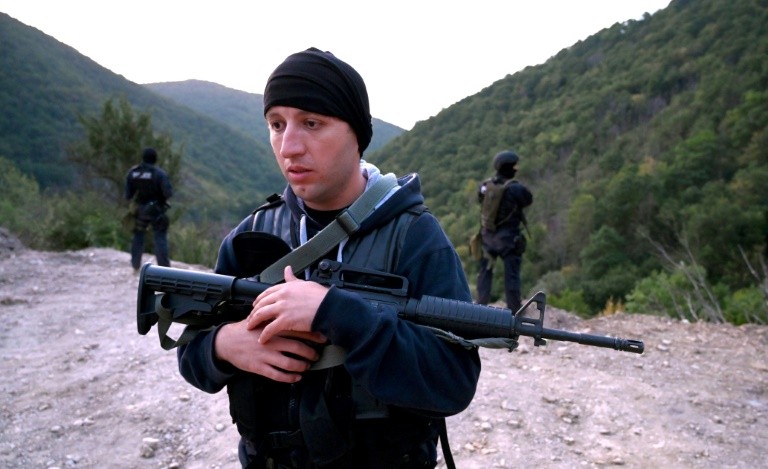Tbilisi (AFP) – Georgia warned Friday of the risk of a “serious confrontation” with Russia-backed South Ossetia after the breakaway region demanded that Georgian authorities remove a checkpoint on its disputed boundary.
The Georgian foreign ministry said it observed “mobilisation of military equipment and personnel” near the village of Chorchana, where the checkpoint has been set up.
The situation risks “escalating into a serious confrontation,” Georgia foreign ministry spokeswoman Mari Narchemashvili told AFP.
At talks mediated by the EU and the Organization for Security and Co-operation in Europe (OSCE) on Thursday, South Ossetia demanded that Georgian police dismantle the checkpoint before 0300 GMT on Friday, according to one of the delegates at the meeting.
“If this condition is not met, the government (of South Ossetia) will take all legal measures to ensure security of the South Ossetian people and protect the state border,” South Ossetian delegate Yegor Kochiev said in televised remarks.
Kochiev is a delegate to the Incident Prevention and Response Mechanism (IPRM), which meets to discuss the security situation under EU and OSCE mediation.
South Ossetia officials say the checkpoint is right next to the village of Uista, known as Tsnelisi in Georgia.
Later Friday, the Russian-backed breakaway republic’s president Anatoly Bibilov ordered that a checkpoint be erected nearby, and security officials announced they were starting a “humanitarian operation,” without giving details.
“I hope Georgia… will do everything to resolve the instability they caused by their illegal actions,” Bibilov was quoted as saying by Russian agencies. “Resolving this issue by force would be highly undesirable.”
– ‘Intense exchanges’ –
The US State Department in a statement said it was “monitoring reports of military build-up” in the area and called on all parties to “avoid escalation.”
Russia’s foreign ministry called for “restraint”, while accusing Tbilisi of “deliberately fuelling tensions at the border in recent months through provocations and propaganda campaigns backed by the West”.
On Thursday, the OSCE said in a statement that “recent developments along the administrative boundary line had negatively impacted the overall security situation.”
There had been “intense exchanges” at the meeting about the border post although the talks had been cut short, the statement said, without giving further details.
The boundary line has become contentious in the wake of spiralling tensions between Tbilisi and Moscow over Georgia’s aspirations to join EU and NATO.
The two fought a brief war in 2008 over South Ossetia and another breakaway region Abkhazia.
The war — which claimed the lives of hundreds of people from both sides — erupted after Tbilisi launched a large-scale military offensive against Moscow-backed South Ossetian forces which had been shelling Georgian villages.
Russian forces bombed targets across the country and occupied swathes of its territory before withdrawing to the two separatist enclaves.
After the conflict, which ended thanks to a French-mediated ceasefire, the Kremlin recognised South Ossetia and Abkhazia as independent states and stationed permanent military bases there.
Tbilisi and its Western partners have condemned the move as an “illegal occupation” of what amounts to 20 percent of Georgia’s sovereign territory.
